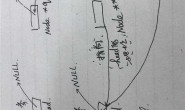| 30分 | |
| 5分 |
* An optional starting asterisk indicates that the data is to be read from the stream but ignored (i.e. it is not stored in the location pointed by an argument).
|
| 5分 |
A field width or precision, or both, may be indicated by an
asterisk * instead of a digit string. In this case, an int argument supplies the field width or precision. |




